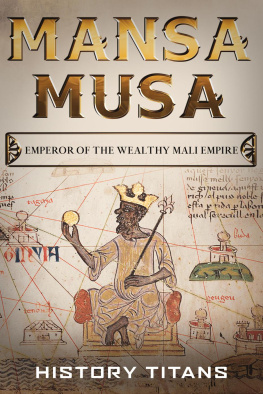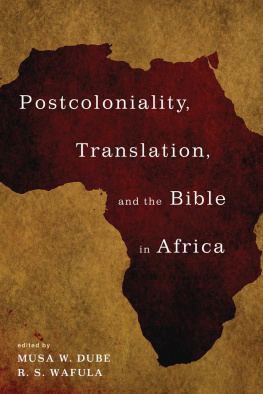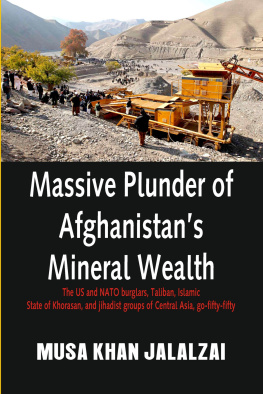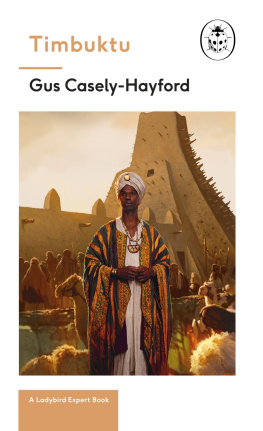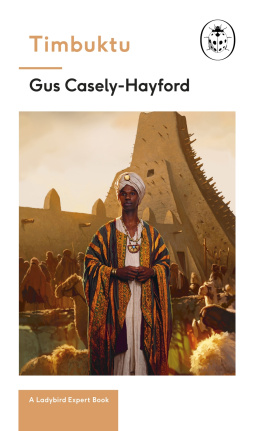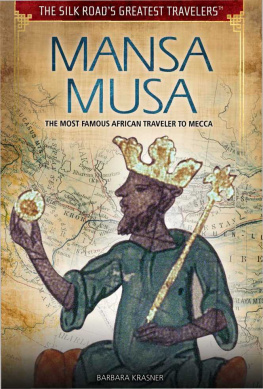Mansa Musa
Emperor of the Wealthy Mali Empire
Copyright 2020 - All rights reserved.
The content contained within this book may not be reproduced, duplicated or transmitted without direct written permission from the author or the publisher.
Under no circumstances will any blame or legal responsibility be held against the publisher, or author, for any damages, reparation, or monetary loss due to the information contained within this book, either directly or indirectly.
Legal Notice:
This book is copyright protected. It is only for personal use. You cannot amend, distribute, sell, use, quote or paraphrase any part, or the content within this book, without the consent of the author or publisher.
Disclaimer Notice:
Please note the information contained within this document is for educational and entertainment purposes only. All effort has been executed to present accurate, up to date, reliable, complete information. No warranties of any kind are declared or implied. Readers acknowledge that the author is not engaging in the rendering of legal, financial, medical or professional advice. The content within this book has been derived from various sources. Please consult a licensed professional before attempting any techniques outlined in this book.
By reading this document, the reader agrees that under no circumstances is the author responsible for any losses, direct or indirect, that are incurred as a result of the use of information contained within this document, including, but not limited to, errors, omissions, or inaccuracies.
Table of Contents
M ansa Musa, an African ruler, widely known for his wealth and royalty, was an emperor who ruled the Mali Empire. The 14th century witnessed Mansa Musa's grandeur, lavish spending, and his famous pilgrimage to Mecca, which caused major changes in the Mali Empire and in a few regions around the world, namely Cairo in Egypt and some parts of Europe. To date, he is plausibly regarded as having been one of the richest people in the world, even when compared to the billionaires of the 21st century. It's believed that his total worth was around $400 billion, which is a lot more than any billionaire in today's world.
He is known for his praiseworthy devotion to Islam and how he inspired trade, economic growth, and culture in Timbuktu. His contribution to the spread of Islam was highly appreciated in the community due to his constant orders to build mosques and schools that taught Koranic values. He also encouraged students to enroll in Islamic universities in North Africa.
One of the most important highlights of his life was his Mecca pilgrimage. He was accompanied by tens of thousands of heralds and soldiers, dressed in expensive Persian silk, along with horses and camels that carried an enormous amount of gold. His return from Mecca is another interesting tale that traces his route along with various important stops and how he extended a helping hand to improve the economy of those communities.
The life of Mansa Musa is an exciting story that sparks bewilderment. This book covers the major aspects of his life, touching on important events and milestones such as his life before the reign, his rule over the Mali Empire, his expedition to Mecca, and how this pilgrimage led to major changes in his kingdom and other parts of the world. He also made noteworthy contributions that helped people in many ways, which will be covered in the last chapter. His stop in Egypt is another thrilling tale that you will soon read about in detail. Mansa Musa's wealthy life and enterprises were so exhilarating that a few European cartographers added his drawings to maps and atlases in the late 14th century.
But his life's anecdotes are not only about generosity and giving. He conquered a lot of lands to extend his rule over Africa, including the city of Gao in the Songhai Empire, which was added to his precious count of acquired territories. These include Chad, Nigeria, Mauritania, Niger, Senegal, Gambia, Guinea, and Mali, as they are known today.
We'll also cover how Mansa Musa's reputation diminished after the Mali Empire started falling apart, turning him into more of a parodic figure than a kind king who wished nothing but prosperity for his kingdom and a good life for his citizens.
Many people are not aware of this great emperor and his interesting tale. Its time to catch a glimpse of his splendor and understand his effort to try and change the world.
Chapter 1: Before the Reign
M ansa Musa was the grandson of Abu-Bakr Keita and the son of Faga Laye. Many speculate that he was born around the year 1280 CE. Mansa Abu-Bakr, who was Musa's brother, ruled the Mali Empire until the year 1312. Mansa Musa ascended the throne after he was appointed the deputy of the king, Abu-Bakr Keita II, who disappeared to discover the regions around the Atlantic Ocean. Mansa Musa became the Emperor of Mali in the year 1312, upon being declared as an heir to the king. The word 'Mansa' denoted an emperor in a ruling position, who also led the government of the empire. The Mali Empire saw significant changes during the rule of King Sundiata and Mansa Musa, both belonging to the same lineage.
T he oldest trace that marks the plausible beginning of the Mali Empire dates back to the Neolithic period in West Africa's Sudan region, which was home to the Iron Age tumuli, a few villages, and megaliths. There was an abundance of fertile land due to the regular flooding of the Niger River in its surrounding areas, giving opportunities to the farmers to grow red-skinned African rice and millet. There was no shortage of food as herding and fishing made for important food sources, too. Other food sources included harvesting root crops, pulses, fiber plants, oil, tubers, and fruits. The region was also rich in precious metals; gold and copper were regularly mined.
After the Mali Empire was established, several fights and battles took place for control of the throne, mostly around the lands west of the Niger River. The first notable rule over Mali was established by a group called Soso. Initially owned by the Kingdom of Ghana (6th13th century), their new kingdom offered them plenty of gold and wealth that could sustain the group for years. The Ghana Empire, which was also the first notable conqueror of the Mali Empire, created its kingdom on the basis of its military power and the treasure collected from trade. By the end of the 12th century, the Ghana Empire started to regress, due to many reasons that included insufficient harvests and lack of food, regular occurrence of civil wars, and imposing acts by other kingdoms. It eventually declined after the king of the Soso group, Sumanguru or Sumaoro Kant, took over the Empire.
Next page
